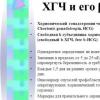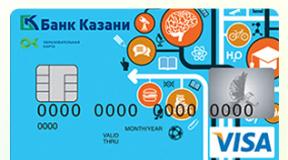Cash settlement limit. Cash payments between legal entities. Comparison of the "old" and "new" cash settlement procedure
In the activities of any organization, there are cash payments. In practice, most often they are held in a non-cash format. It is fast, convenient and there are no restrictions. But it also happens that a legal entity has the opportunity to pay only in cash. In this case, it is necessary to take into account what limits for legal entities are set for cash payments.
What is the limit for cash payments
The limit for cash payments is regulated by law
Legally enshrined and in the current 2019 the maximum amount of payment between legal entities and IP equated to them. It is 100,000 rubles, subject to calculations within one contract.
If settlements are made in another currency, then when transferring at the current exchange rate, the amount should not exceed the previously indicated one.
It is important to know that if the transfer amount has exceeded the allowable amount or, conversely, more than 100,000 rubles have been credited to the account, then this will be considered a violation. Moreover, the person who receives money in excess of the limit, and not the organization that transferred the funds, will be found guilty.
Limited Settlers
Limiting sizes for such calculations exist only for legal entities and individual entrepreneurs
The activities of various subjects of economic relations are extensive and, alas, the law is not always observed in the course of various transactions. The limit for calculations is necessary just to suppress "shadow" transactions and control the payment of taxes.
Unlike legal entities, cash settlements between individuals are not limited by anything, just as they are unlimited when individuals interact with individual entrepreneurs or legal entities.
For what purposes the individual entrepreneur can spend cash
For the normal functioning of the organization or the work of an individual entrepreneur, financial support is required. Instruction N 3073-U regulates those purposes for which any company has the right to spend cash directly from the cash desk. These goals are:
- payment of wages and other social benefits to employees;
- payment of insurance;
- various consumer needs;
- payment for goods;
- refund in case of non-performance of work or provision of services;
- issuance of accountable amounts.
Payments under one contract
It was mentioned above that the limits of 100,000 rubles are set for settlements under one contract. If several contracts are drawn up with the amount of each not exceeding the allowable one, then such a transaction may still be considered illegal when the total value for all contracts exceeds the limit. According to the same principle, installments of an amount exceeding the above limit are not allowed.
What are the penalties for violation of restrictions
If there is a law, then there is responsibility for its violation. In this case, for exceeding the limit, an administrative one is provided with a penalty in the form of a fine. At the same time, not only a legal entity, but also its head, as a private entity, who committed a violation of the law, falls under the fine.
A fine for a legal entity is imposed in the amount of 40-50 thousand rubles, for a manager - ten times less: 4-5 thousand.
Of course, for a large company, such a fine will be quite insignificant, but for a small individual entrepreneur, it will be quite significant.
Note that when a violation is found, there is a certain limitation period for considering a crime. It is 2 months from the date of signing the contract, according to which the restrictions on cash payments were exceeded. If the criminal fact has not been revealed after this time, then the organization can forget about the fine. In any case, before signing an agreement, you must carefully study all its conditions, and try not to violate the law.
What is the cash settlement limit at the moment and how to reflect the excess of the limit in accounting.
Systematize or update knowledge, gain practical skills and find answers to your questions on at the School of Accountants. The courses are developed taking into account the professional standard "Accountant".
Cash settlement limit
The maximum amount of cash settlements is 100,000 rubles. This limitation applies to cash payments:
- between organizations;
- between an organization and an individual entrepreneur;
- between individual entrepreneurs.
Payments with the participation of citizens are carried out without limiting the amount. That is, a company or an entrepreneur has the right to receive or transfer cash amounts to citizens without restrictions and not comply with the cash settlement limit.
What is not covered by the cash settlement limit?
Unlimited cash can be spent if:
- payment of wages;
- payments of social charges;
- issuing money on account;
- spending funds for the personal needs of the entrepreneur, provided that the payment will not be directed to his entrepreneurial activity.
On one cash day, it is allowed to carry out transactions with the same counterparty in the amount of more than 100 thousand rubles. For example, when paying under several contracts, no more than 100 thousand rubles under one contract in one day. This follows from clause 6 of the instructions of the Central Bank of the Russian Federation dated 07.10.2013 No. 3073-U. Quote: "Cash settlements in the currency of the Russian Federation and foreign currency between participants in cash settlements within the framework of one agreement concluded between the specified persons."
If the subject of the contract and all other conditions remain the same in other contracts, then it is highly likely that the court can recognize such contracts as "one contract".
Penalty for violation of the cash settlement limit requirement
If a legal entity or individual entrepreneur exceeds the amount of 100,000 rubles under one contract, then this is considered a violation of the procedure for working with cash. For this, a fine is provided under article 15.1 of the Administrative Code of the Russian Federation. For organizations, its amount ranges from 40,000 to 50,000 rubles. For a responsible employee (official) - from 4000 to 5000 rubles. Inspectors have the right to hold the organization accountable within two months from the date of violation (part 1 of article 4.5 and subparagraph 6 of part 1 of article 24.5 of the Code of Administrative Offenses of the Russian Federation).
According to the Code of Administrative Offenses of the Russian Federation, administrative liability is provided for exceeding the limit of cash payments. And for both buyers and sellers. Cases related to violation of the limit of cash payments are considered by tax inspectorates (Article 23.5 of the Administrative Code of the Russian Federation). The tax office has the right to fine both the buyer and the seller. Because both the payer and the recipient are participants in cash settlements, which means that both are responsible for the violation (Article 15.1 of the Code of Administrative Offenses of the Russian Federation).
We recommend the express course Kontur.Shkoly "". Training will help to put in order documents when working with cash register, including when using online cash registers, to work correctly with a cash limit. You will be able to establish error-free operation with cash registers and strict reporting forms, draw up a local regulatory act on cash discipline, which will help you pass inspections without fines.
The Central Bank of the Russian Federation dated October 7, 2013 No. 3073-U establishes cash limit money between legal entities in 2020, as well as the procedure for payment in cash. And closes the loopholes legal ways to bypass the 100 thousand limit. Cash settlements between individuals are not limited. There is no limit on cash settlements with an individual.
The main innovation is that legal entities and individual entrepreneurs will be able to spend only money on some cash amounts. Withdrawn from the bank account and deposited in the cashier.
There is a ban on the withdrawal of cash from the cash desk from cash proceeds for purposes not mentioned in the instructions of the Central Bank. That is, in order to issue a loan to an employee, you need to take cash proceeds. Take it to the bank. Then get the loan amount in cash from the bank by check. And only from the cash received in the bank to issue a loan. Naturally, the servicing bank makes a profit in the form of commission for accepting and withdrawing cash. This seems to be the main purpose of the ban. So that people pay more commissions to their bank.
From proceeds, loans, return of unspent accountable money and all other amounts received at the cashier not from the account of your organization (IP). Cash payments that are not specified in the list of allowed payments cannot be made.
And here are the pleasant innovations of cash payments. The individual entrepreneur has the right to take the proceeds from the cash desk for his personal needs without a limit on the amount. It is enough to draw up an RCO - (consumable) with the wording "For personal (consumer) needs of individual entrepreneurs".
And here is the limit cash settlement remained unchanged. RUB 100,000 within the framework of one agreement between legal entities and individual entrepreneurs. (hereinafter referred to as participants in cash settlements).
to the menu
Who are the participants who are subject to the cash settlement limit?
The maximum amount of cash settlements is 100 000 rub. This limitation applies to cash payments:
- between organizations;
- between an organization and an individual entrepreneur;
- between individual entrepreneurs.
Settlements with the participation of citizens are carried out no amount limitation... That is, a company or an entrepreneur has the right to receive or transfer cash amounts to citizens without restrictions and not comply with the cash settlement limit.
to the menu
What is NOT covered by the cash settlement limit?
Unlimited cash can be spent if:
- payment of wages;
- payments of social charges;
- issuing money on account;
- spending funds for the personal needs of the entrepreneur, provided that the payment will not be directed to his entrepreneurial activity.
to the menu
CENTRAL BANK OF THE RUSSIAN FEDERATION
The text of the decree No. 3073-U of the Central Bank of the Russian Federation on Cash Settlements
This Directive establishes the rules for making cash payments in the Russian Federation in the currency of the Russian Federation. And also in foreign currency in compliance with the requirements of the currency legislation of the Russian Federation.
1. This Directive does not apply to cash payments with the participation of the Bank of Russia. And also on:
cash payments in the currency of the Russian Federation and in foreign currency between individuals. Non-individual entrepreneurs;
banking operations carried out in accordance with the legislation of the Russian Federation. Including regulations of the Bank of Russia;
making payments in accordance with the customs legislation of the Russian Federation and the legislation of the Russian Federation on taxes and fees.
to the menu
Questions and answers on cash restrictions 100,000 rubles.
So, we see that the Direction establishes the Limit of calculation in cash for payment of settlements between legal entities and individual entrepreneurs since 2014. Which has not changed in size and is equal to 100,000 rubles under one agreement.
Is it possible on one cash day and on one invoice to carry out transactions with the same counterparty in the amount of more than 100 thousand rubles
Yes, it is possible under several contracts no more than 100 thousand rubles. one contract in one day. It is written: "Cash payments in the currency of the Russian Federation and foreign currency between participants in cash payments within the framework of one contract... A prisoner between these persons. "
Attention!
If the subject of the contract and all other conditions remain the same in other contracts, then it is highly likely that the court can recognize (some courts do) such contracts as "one contract".
Issuance of cash to an employee against a business trip report
You can issue them including at the expense of cash proceeds and there will be no violation of cash discipline in this case. Because the money spent on a business trip is the expenses of the organization, that is, payment for goods, works, services purchased in its interests. And it is allowed to spend cash proceeds on such payment. It doesn't matter if you issue money in advance or reimburse employees for amounts already spent.
to the menu
Penalty for non-compliance with cash discipline
If a legal entity or individual entrepreneur exceeds the amount of 100,000 rubles. under one contract, then this is considered a violation of the procedure for working with cash. For this, a fine is provided for.
For organizations, its amount ranges from 40,000 to 50,000 rubles. For a responsible employee (official) - from 4000 to 5000 rubles. But the inspectors have the right to bring the organization to justice within two months from the date of the violation (part 1 and sub. 6 part 1).
According to the provisions of part 1 and subparagraph 6 of part 1, a fine for violation of the cash settlement limit can be fined only within two months from the date of its commission... The moment when the violation was discovered does not matter.
to the menu
Who will be fined by the tax inspectorate if the amount of cash payments between the buyer and the seller exceeds 100,000 rubles.
The tax office has the right to fine both the buyer and the seller. Because both the payer and the recipient are participants in cash settlements, which means that both of them should be held liable for the violation (
Cash settlements between companies, businessmen or individuals are made in two versions - cash and non-cash. Each of them is used in situations where it is considered the most appropriate. Let's consider the features of settlement operations in different situations.
Cash and non-cash payments
Domestic legislative norms allow transactions in cash between:
- enterprises;
- businessmen;
- companies and individual entrepreneurs;
- companies or individual entrepreneurs.
At the same time, depending on who the transactions are made between, there are strict restrictions on the amount of funds used in the calculations. So, individuals who do not have the status of an individual entrepreneur can operate with any amounts in transactions with each other. Limits have not been set for cash settlements of enterprises and individual entrepreneurs with individuals. But with financial interaction between legal entities, as well as between enterprises and businessmen, monetary transactions are clearly regulated.
The maximum size for one transaction between individual entrepreneurs and legal entities cannot exceed 100,000 rubles. (Instruction of the Central Bank dated 07.10.2013 No. 3073-U). This maximum holds true for agreements executed in foreign currency. It is important to remember that for cash transactions with cash between companies / individual entrepreneurs, it is necessary to use the CCP registered with the IFTS.
Cash payments between a legal entity and an individual
As already noted, the established cash settlement limit does not apply to transactions between an enterprise (or individual entrepreneur) and an individual. This directly applies to settlements with buyers and customers, that is, they can purchase a product or service for cash for an amount that is not limited by law.
In addition, the limit is not taken into account in some situations (for example, payment of customs duties) or in intra-company transactions involving the receipt of the following cash by employees:
- money for a report or for a business trip;
- salary, social benefits, payments under insurance contracts;
- loans.
The issuance of cash for these purposes is not limited by law, but is controlled by the company, and it should be borne in mind that maximum limits are set for travel funds (per diem) that are not subject to personal income tax.
Example
An employee of Astra LLC received travel allowances in the amount of 200,000 rubles. 60,000 rubles were used directly for travel expenses. (accommodation, daily allowance), and 140,000 rubles. the employee (on behalf of the company) concluded and paid in cash an agreement with the counterparty organization. There is a violation of the law, which can entail impressive fines for exceeding cash payments between legal entities: from an enterprise from 40,000 to 50,000 rubles, from officials from 4,000 to 5,000 rubles. (part 1 of article 15.1 of the Code of Administrative Offenses of the Russian Federation).
Entrepreneur's cash payments
If an individual is an individual entrepreneur, he is subject to a restriction in commercial cash settlements with organizations and other individual entrepreneurs.
A businessman has the right to give himself from the cash desk amounts that are not limited by the limit, while he can spend them on his personal needs. Payment in cash for each of the transactions concluded by the entrepreneur (except for transactions with individuals - not individual entrepreneurs) must not exceed the established limit of 100,000 rubles.
Example
IE Petrov TT, taking 300,000 rubles from the cash register, entered into a supply agreement for 160,000 rubles. Exceed 100,000 rubles. it is not possible to pay in cash in this case as well. An individual entrepreneur can pay 100,000 rubles in cash, and the remaining 60,000 rubles. should be transferred to the seller by bank transfer.
If the individual entrepreneur pays in cash for his personal expenses that are not related to commercial activities, this limitation does not apply.
As a rule, business entities practice a breakdown of such contracts, characterizing different conditions in each or dividing the assortment. It should be borne in mind that the court may consider several contracts concluded with one supplier as a single transaction if they were signed on the same day and paid in a lump sum in the amount of over 100,000 rubles. (Resolution of the Federal Antimonopoly Service on case No. A72-3587 / 2008 of 13.12.2008).
Cash settlements between a legal entity and an individual involve the use of a cash register that transfers information to the IFTS. This requirement applies to all companies and individual entrepreneurs, except those exempted from the mandatory use of KKM or having a deferral until 07/01/2019.
Cash and non-cash payments with customers
Cash settlements with buyers are recorded by the KKT. If the buyer is an individual, then there are no restrictions on the amount of the purchase. When accepting payments from legal entities, it should be remembered that the settlement limit is 100,000 rubles. applies to this type of operations. Even with a significant variance in time and payment in installments, the total amount of cash in one transaction should not exceed the established maximum.
The fact of the purchase is accompanied by the issuance of a cashier's check; when the company makes a purchase, it is supplemented with other supporting documents (sales receipt or invoice).
When interacting with buyers, it should be remembered that the targeting of funds from the cash desk is a mandatory norm. Therefore, if a situation arises with the return of money for the product, it is necessary to find out how it was paid when purchasing. If the purchaser paid in cash, then the cost of the goods can be returned from the cash desk. In case of non-cash payment (payment by card), the refund is made by transfer to the buyer's bank account.
Very soon, amendments will be made to the current legislation (the law on KKT dated May 22, 2003 No. 54-FZ) concerning the use of KKM in non-cash payments. According to the adopted amendments to the law, the use of CCP is introduced for non-cash payments with individuals. In this case, the cashier's check must be issued no later than the next day after the settlement, but no later than the moment of transfer of the goods. Note that this requirement does not apply to cashless payments between legal entities and individual entrepreneurs.
There are situations when the parties prefer cash to non-cash, even with different legal status (one is a legal entity, the other is an individual entrepreneur). This is due to the convenience of conducting monetary transactions and the absence of restrictions on their performance. But in order to carry out the calculation correctly, you need to know all the rules for such operations. Consider the features of such a transfer of funds, taking into account all the nuances that need to be taken into account.
○ What is cash?
This type of settlement is a direct transfer of funds for goods sold or services rendered. They can be used by both legal entities and individuals.
Settlements between legal entities, as well as settlements with the participation of citizens related to their entrepreneurial activities, are made in a non-cash manner. Payments between these persons can also be made in cash, unless otherwise provided by law.
(Clause 2, Article 861 of the Civil Code of the Russian Federation).
○ Legal regulation of activities.
Despite the fact that the possibility of such a calculation is allowed, the law imposes certain restrictions that relate not only to compliance with the intended purpose of the payment, but also to the execution of the calculation itself. This is a documentary registration of all financial transactions, which is subject to strict reporting.
○ Obligations of a legal entity.
Cash transactions with individuals require a legal entity to comply with certain rules. Violation of them leads to various fines and can lead to the termination of activities.
✔ Cash register.
A cash register machine (KKM) is necessary when making cash payments, as well as payments using payment cards. The procedure for such transactions is regulated by the Central Bank of the Russian Federation. The issued cashier's check is a strict reporting document, on the basis of which the organization's financial transactions are recorded. An example is payments for purchases where the cashier issues a check to the customer.
The car must be registered with the tax authorities, otherwise the company faces a fine of up to 40 thousand rubles.
✔ Cash book.
The cash book is kept according to the approved form, a new magazine is drawn up every year. To be filled in every day when cash transactions were carried out. Consists of two parts: a loose leaf of a cash book and a cashier's report. Unlike KKM, it is used to account not only for expense transactions, but also for receipts. Upon receipt of funds, an incoming cash order is drawn up, and its detachable part is attached to the bank statement.
Expense transactions are drawn up with an expense cash order. If the money is deposited with the bank, a receipt and order will be issued. The receipt is filed to the cash register, and the order to the cash book. This document is maintained by all organizations working with cash, regardless of the organizational and legal form and type of taxation (clause 4 of article 346.11 of the Tax Code of the Russian Federation).
✔ Resources for the implementation of activities.
The main condition for conducting cash settlements is the ability to track all financial transactions and the corresponding payment of taxes from them. Therefore, the presence of a cash register and a cash book is strictly necessary in the presence of competent fiscalization.
In addition to the above, you must have special reports and a contract with the service center.
○ Settlement limit.
According to the Order of the Central Bank of the Russian Federation No. 3073-U, money from the cash desk can be spent on:
- Social payments to employees, as well as the payment of wages.
- Payment of insurance to individuals.
- Payment for goods and services.
- Issuing cash to an employee against a report.
- Refunds for returned goods or services that were not accepted by the buyer, but already paid for in cash.
Individual entrepreneurs can also spend funds to cover consumer expenses not related to entrepreneurial activity.
✔ Who may not be subject to the settlement limit?
In accordance with clause 5 of the Decree, cash transactions of legal entities with individuals can be carried out without restrictions both in national and foreign currencies. It follows that an individual can transfer any amount of money to the organization. In the opposite case, there is also no limit, but there are some restrictions on the goals that are spelled out in the legislation.
✔ What is not covered by the limit?
There is also no limit if paid:
- Wage.
- Social payments.
- Accountable funds.
Also, according to the Decree, the limit does not apply, in cases where transactions are carried out through the Bank of Russia, customs duties and taxes are paid, transfers are made on credit obligations. Additionally, the excess of the established amount of payments is allowed on the days of issuing wages, as well as on holidays and weekends that are working days.
○ Punishment for non-compliance with the limit.
According to clause 1 of article 15 of the Civil Code of the Russian Federation, exceeding the limit is qualified as an administrative offense. If a violation is found, a fine will be imposed:
- Up to 40-50 thousand rubles for a legal entity.
- Up to 4-5 thousand rubles for the head.
Thus, cash payments between organizations and individuals have their own characteristics, which are important to consider. Their violation can become the basis for the imposition of an administrative penalty.



















